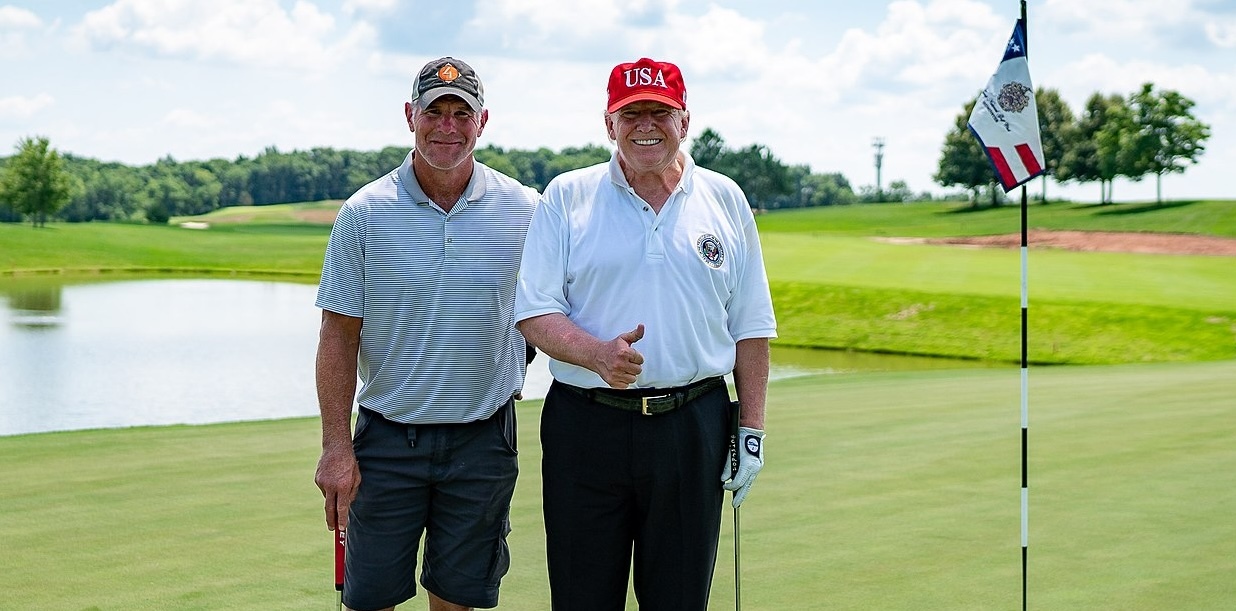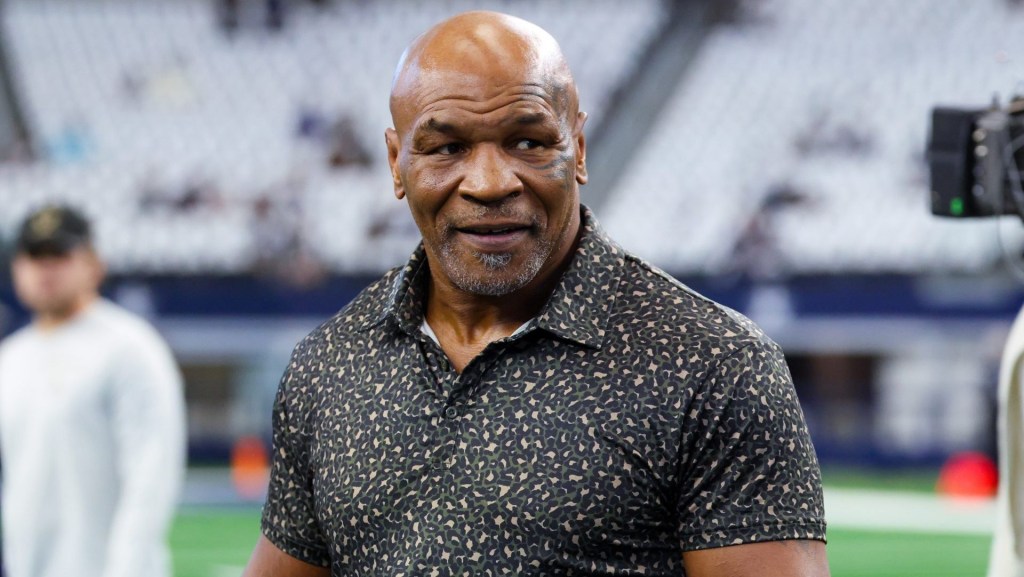Last week, Hall of Fame quarterback Brett Favre spoke at a campaign rally in Wisconsin for Donald Trump. Now Trump has been reelected to the White House, and that could have implications for the Mississippi welfare case that ensnared Favre.
Favre has long denied wrongdoing in the scheme that saw around $8 million in federal welfare funds diverted to Favre and two of his pet projects. Favre has repaid the $1.1 million he received directly, although Mississippi State Auditor Shad White is after Favre to also pay unpaid interest.
Favre has not been charged criminally, and whether he does get charged is up to the Department of Justice. That’s where President Trump comes in.
“We will need to wait and see,” former federal prosecutor Jeffrey M. Chemerinsky tells Front Office Sports. “An early tell could be who he picks to fill those key roles at the Justice Department. If you are a Trump ally under investigation, your hope would be that resources will be diverted elsewhere and some investigations could die a quiet death. It’s unclear if Trump is willing to interfere with active investigations and prosecutions. It would be deeply troubling.”
Favre, who played 17 of his 20 NFL seasons with the Packers, has been a vocal Trump supporter for years. “Much like the Packer organization, Donald Trump and his organization is a winner, and the United States of America won with his leadership,” Favre said at the Oct. 30 campaign rally.
Once Trump took the stage in Green Bay, he paused for a nearly 30-second ovation when he mentioned Favre.
“What a beautiful family, but this is a special guy,” Trump said after the applause died down. Man, does he have a hand. This guy shook my hand. His fingers are like sausages. No wonder he can throw the ball so hard.”
Favre was also greeted by GOP lawmakers at a congressional hearing on Temporary Assistance for Needy Families misspending in September when Favre first disclosed he’d been diagnosed with Parkinson’s disease.
“People have to understand that if this could happen to Brett Favre, it could happen to anybody,” Rep. Mike Kelly (R., Pa.) said of Favre’s welfare entanglement in Mississippi during the House Ways and Means Committee hearing.
While Favre has not been charged in the federal probe, he is a defendant in a civil case brought in 2022 by Mississippi’s welfare agency that seeks to recover more than $90 million in illegally diverted TANF funds—federal money meant to support the poorest citizens of Mississippi, the most impoverished state in the U.S. The Southern Mississippi Athletic Foundation is also a defendant in the lawsuit over the $5 million it received after Favre’s text messages showed his lobbying efforts to fund a volleyball arena after his daughter committed to play the sport at his alma mater.
Jake VanLandingham, Favre’s business partner at a drug company that received about $2 million in TANF funds, was the last of the seven individuals charged by the feds over their alleged roles in the welfare scandal. VanLandingham pleaded guilty to a single count of wire fraud in July and, like the others charged, hasn’t been sentenced as the probe continues.
Federal criminal defense attorney Matt Tympanick said “there’s a real possibility” Favre could be charged before Todd Gee, who is President Biden’s pick to lead the U.S. Attorney’s Office for the Southern District of Mississippi, is replaced when Trump takes office in January. FOS reported in July that the window to charge Favre for his alleged role in the welfare scandal is uncertain.
“The DOJ is supposed to be a non-political entity and independent,” Tympanick told FOS. “It’s not supposed to take orders from the White House. If you are saying you are for law and order and you are going to go after thieves and criminals, you have to allow the DOJ to do its job even when they are investigating your friends.”
Trump pardoned political ally Joseph M. Arpaio, the former sheriff of Maricopa County (Ariz.), seven months into his first term. That 2017 pardon, the first of Trump’s presidency, saved Arpaio from a jail sentence after he was convicted of contempt in federal court.
Trump was critical of several of DOJ’s investigations in his first term, particularly when it came to allies Michael Flynn and Roger Stone. But he didn’t directly intervene in a case until much later in his presidency after a federal judge delayed the DOJ’s effort under then-Attorney General Bill Barr to get charges against Flynn dropped. Trump pardoned Flynn, his former national security advisor, in November 2020, and Trump followed through with pardons of former campaign chairman Paul Manafort and Stone.
“The last time he was president, there were constraints,” said Chemerinsky, a partner at Kendall Brill & Kelly LLP. “The people he picked were people who still viewed their role as serving the people of the United States. It would be scary if he picks somebody to lead the Justice Department who sees their role as really being the president’s personal lawyer.”
Tympanick said that if Favre is charged by Gee or his successor, he’d expect Trump to wait to pardon Favre until after proceedings have concluded.
“I don’t think he will simply pardon him right away because that would be a horrible precedent and would just allow somebody to steal if they endorsed him,” Tympanick said. “That creates a pay-for-play situation. That could lead the House—if the Democrats regain control in 2026—to impeach Trump a third time. So, I think he will be hands-off and allow the U.S. Attorney’s office to finish its investigation.”







![[Subscription Customers Only] Jun 15, 2025; Seattle, Washington, USA; Botafogo owner John Textor inside the stadium before the match during a group stage match of the 2025 FIFA Club World Cup at Lumen Field.](https://frontofficesports.com/wp-content/uploads/2026/02/USATSI_26465842_168416386_lowres-scaled.jpg?quality=100&w=1024)
![[Subscription Customers Only] Jul 13, 2025; East Rutherford, New Jersey, USA; Chelsea FC midfielder Cole Palmer (10) celebrates winning the final of the 2025 FIFA Club World Cup at MetLife Stadium](https://frontofficesports.com/wp-content/uploads/2026/02/USATSI_26636703-scaled-e1770932227605.jpg?quality=100&w=1024)








